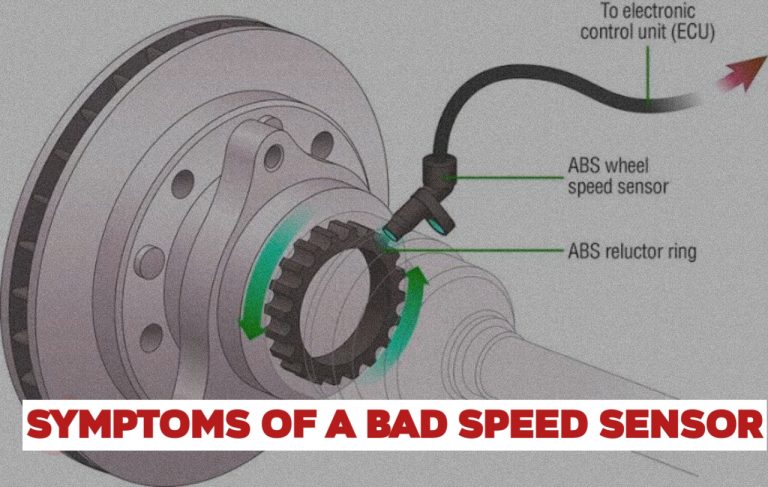Modern cars have advanced technology that notifies owners of their vehicles’ performance and health; one such technology is the speed sensor.
The Vehicle speed sensor, also known as the transmission speed sensor, calculates the driver’s speed using a device placed on the transmission.
It can do this by calculating the rotational speed of a toothed wheel located on a shaft in the transmission. The power control modules pick up these small voltage signals, balance them, and relay them on the speedometer.
Also, the input shaft sensor and output shaft sensor work together to provide accurate PCM results.
When a speed sensor goes bad, it doesn’t just stop relaying this information to the control modules. Still, it affects the functionality of components such as the engine and other systems which rely on its feedback to regulate the car’s operation.
This will also cause your check engine light to come on since the PCM cannot verify the details provided by the sensors.
Even though most car experts can continue driving their cars with a faulty speed sensor, it will reduce your driving efficiency if you’re a newbie.
So, it’s relevant to note specific symptoms that signify your speed sensor is going bad.
Please continue reading to check out our top 6 signs of a bad speed sensor.
What are the Common Signs of a Bad Speed Sensor
If you notice one or more of the following symptoms on your vehicle, it could signal that your speed sensor(s) are faulty.
1. Check Engine Light will Ignite
Once the PCM starts getting incorrect readings from the Vehicle speed sensor, it’ll store a diagnostic trouble code, and the check engine light will turn on.
If you don’t know the specific sensor that went bad, you can connect your car to an OBD-II scanner to read the code.
You can further visit an auto repair shop for complete troubleshooting and fixing.
2. Abnormal Readings on the Speedometer
Due to incorrect data being sent to the PCM, the speedometer will record abnormally high readings.
It could even be not suitable to the extent that nothing would be displayed on the speedometer.
3. Improper Gear Operations
Most cars use the data provided by the PCM to regulate actions such as gear switching. Once the VSS relays incorrect data to the control module, gear operations could be delayed or limited.
This will result in rough and abnormal gear operations. You can reach out to a mechanic to get this issue fixed.
4. Cruise Control Unavailability
The transmission speed sensor also monitors and aids the functioning of the cruise control. This will become unavailable once the PCM records an error code and turns the check engine light on.
You’ve to seek the service of a mechanic to get your cruise control to start working again.
5. Inability to Apply the Torque Converter Clutch
The torque converter clutch aids in providing a connection between the engine and the transmission to reduce transmission fluid temperature.
With the wrong data being provided, the Torque Converter cannot link these two systems.
This effect increases fuel mileage, slipping, and overheating engines.
6. Hard Starting
Once the speed sensor goes bad while the engine is idle, you’ll experience a hard start because the ECU can’t decipher the position of the crankshaft or camshaft because of improper timing.
That’s it.
So, if you want to know what happens when a speed sensor goes bad, this article is for you.
Causes of a Bad Speed Sensor
1. A broken or Damaged Speed Sensor
The impact of external forces could cause the speed sensor to break; excess heat could cause untimely damage.
Also, the speed sensor consists of magnetic components that might get worn out over time, resulting in incorrect readings.
2. An issue in the wiring harness of the speed sensor
The speed sensor has internal wiring that helps send data to the PCM. Problems in the wiring harness can cause improper or no information to be sent to the PCM.
You’ll continue driving with an incorrect speedometer until the speed sensor is replaced or repaired.
3. Dirt Accumulation on the speed sensor
Failure to perform regular clean-up will cause metal particles, dirt, heat, and mud to clog your speed sensor.
This will cause the speed sensor to defect and send wrong signals to the power control modules.
Can I drive my car with a bad speed sensor?
Yes, but it’s not advisable. Because of improper speedometer readings, it’s impossible to decipher how fast you’re driving. This is a crime, especially in countries that have preset driving speeds.
As an Amazon Service LLC Program Associate, V. Auto Basics earns from qualifying purchases. See Our Affiliate disclaimer.
